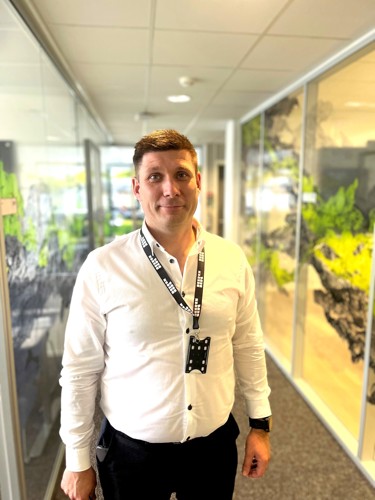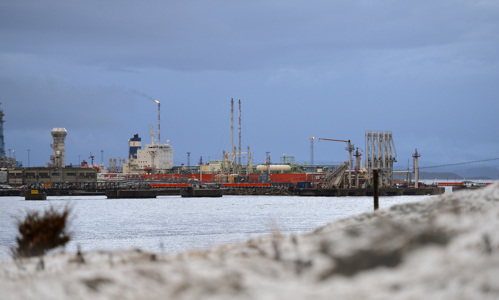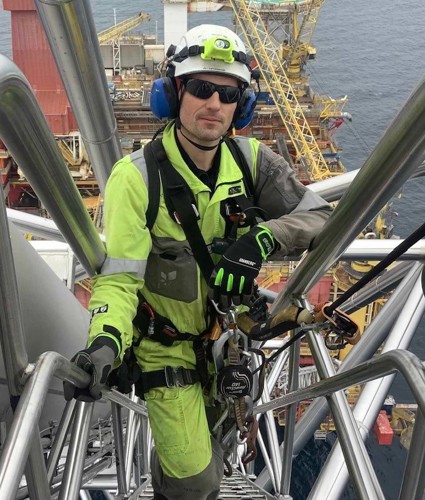Three of the flares will be replaced and installed using helicopters, while the last one will be handled with a complex winch system. A total of 500 meters of steam pipes will be removed, and more than 700 meters will be installed. 140 access technicians will carry out over 20,000 hours of work these weeks.
Spectacular Operation
The assignment, awarded by Equinor, will be one of the most spectacular in Beerenberg's history. A project team of 10 people has spent over a year planning the work in detail, leaving nothing to chance. Every single screw must be in place when the operation starts on Monday, September 2nd.
"We are now in the final phase of planning, with ongoing check-in meetings with the client. Although I'm excited, I feel confident that we have good control and will be ready when we start," says the assistant project manager for the project, Andreas Wisnes Fristad.

Proactive and Adaptable
The project has undergone a long and complex engineering phase, including 3D drawings, steam lines, and calculations to support both existing and new steam lines. As with all projects, changes and additional work have arisen along the way.
"Fortunately, our team has broad expertise in climbing and lifting operations. I am proud of the strong ownership our access technology and mechanical personnel have shown. This is a proactive group that has provided good solutions and seen opportunities rather than limitations," he says, but emphasizes that the most crucial phase is still ahead.
Good Collaboration
Despite an intense year, Fristad praises the collaboration with the client.
"We have had a good and close collaboration throughout the process, and I am impressed by how solution-oriented the client has been. The entire project team has received great support, and together we have solved challenges along the way," he says.

Extensive Experience at the Facility
At Kårstø, Beerenberg will carry out work in mechanical, electrical, and complex rigging, combined with access technology.
One of those who has been involved from the start is scaffolding operator Aleksander Tadeusz Szeremeta. He has a trade certificate in scaffolding and surface treatment, and to be on the safe side, a trade certificate as a chef and a bachelor’s degree as a teacher. The latter two are definitely not requirements in this industry, but his pedagogical skills have proven to be invaluable according to his colleagues.
"I've been at Kårstø since 2008, with the exception of a few trips offshore. I know the facility and know who to contact when something comes up. I am involved in everything from planning and inspection to construction and guidance of scaffolding work," he explains.
Looking Forward to the Start
At the large facility, there is a lot to be transported, and Szeremeta has driven a lot of forklifts and tractors to transport scaffolding, pipes, compressors, and other materials for the project.
"There are strict requirements for how one can move around the facility, so it's important to have all permits in order," he says.
He enjoys working at Kårstø and is looking forward to the project finally starting.
"It will be intense days, but I know who to contact when something unexpected occurs, so we can avoid unnecessary time-wasting," he concludes.



